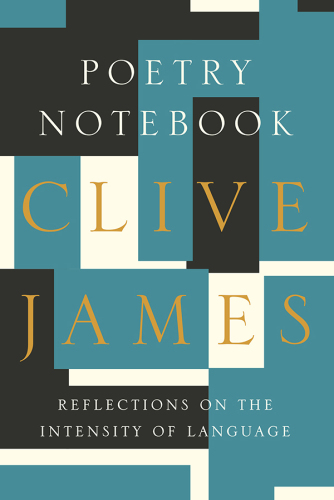
Poetry Notebook
Reflections on the Intensity of Language
کتاب های مرتبط
- اطلاعات
- نقد و بررسی
- دیدگاه کاربران
نقد و بررسی

Starred review from February 23, 2015
This collection of "miniature essays" on poetry by the prolific James (Cultural Amnesia), who is both a poet and an opinionated, outspoken consumer of poetry, informs and delights. James's yardstick is clearâ"If only to secure a brief respite from the barely intelligible, it is forgivable to favour those poets who show signs of knowing what they are saying"âand his voice direct, often blunt: F.R. Leavis "never wrote a poem, rarely said anything interesting about one," and Lawrance Thompson's Robert Frost biography was "dud scholarship." Yet James is fair in revisiting earlier pronouncements, such as of Elisabeth Bishop's poems, which he would now give "less stinted praise." A tone of appreciation prevails, even when it comes with reservations, and there are also surprises, like citations of John Updike's "dauntingly accomplished" light verse and introductions to the work of Australian poets like Stephen Edgar, James McAuley, and Peter Porter. Linked "Interludes" preceding each essay give the book coherence rarely achieved in a collection of previously published works, the bulk of these pieces having appeared in the magazine Poetry between 2006 and 2013. Speaking of Byron, James observes, "His best poetry is good talk based on knowledge." James, who wears his erudition very lightly, likewise offers "good talk" that will send readers back to their bookshelves and onto the Internet to read more great poetry.

March 15, 2015
Critic and poet James (Cultural Amnesia) asserts at the start that these 25 essays will be short, even suggesting in his introduction that some of them are no more than a paragraph. However, an attentive reader will notice that James has a lot to say yet seems too often in no hurry to say it. Though most essays are five-to-seven pages in length and few run longer than 12-13 pages, several seem to amble off in search of a second cigarette shortly after lighting the first. Though such a wealth of interest and energy can be thrilling at first, after a while it can become tiresome; instead of drinking deeply, readers may just want to sip on a few pages at a time. On the plus side, James is a man in love with poems, and he makes a compelling argument for the importance of the art of the poem. A major key to his vision is memory. Upon reading it, he says, a real poem lodges itself in your head. Before you realize it, you are living with passages and phrases. He makes a strong case for poems being memorable and hammers time and again at critical overemphasis on complexity. As a celebration of a few particular poets (specifically: Philip Larkin, Richard Wilbur, W.H. Auden, W.B. Yeats, and Robert Frost) this amicable stroll through modern and contemporary poetry contains glimmering gems. And though they are well worth it, uncovering them requires a bit of effort. VERDICT Recommended for academic and public libraries with good-sized poetry collections. [See Prepub Alert, 9/29/14.]--Herman Sutter, St. Agnes Acad., Houston
Copyright 2015 Library Journal, LLC Used with permission.

























دیدگاه کاربران